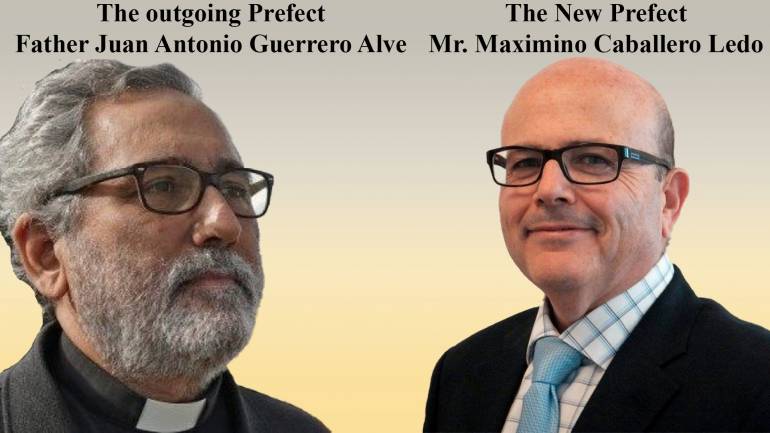Pope appoints lay economist as Prefect of the Secretariat for Economy

Pope Francis accepted Fr. Juan Antonio Guerrero Alve’s resignation and appointed Mr. Maximino Caballero Ledo as the new Prefect of the Secretariat for the Economy on December 1.
After serving three years as Prefect, the Spanish Jesuit Father Guerrero resigned for the “personal reason” related to his health as expressed in his letter to his collaborators.
Pope Francis appointed the lay economist Caballero as the new Prefect of the Secretariat for the Economy to be the successor of Father Guerrero.
Caballero is a friend of Father Guerrero for a long time.
The resignation of Father Guerrero and the appointment of Caballero took effect on December 1.
According to the Vatican Press Office, Pope Francis thanked Father Guerrero "for the dedication shown in his service to the Holy See" and Father Guerrero "managed to put the economy in order, it was hard and demanding work that bore much fruit. The Holy Father assures him of His prayers," the statement read.
In his letter to his employees and collaborators of the Secretariat for the Economy, the outgoing Spanish Jesuit priest explained the reason for his resignation due to surgery this year and undergoing medical treatment.
In the letter, Guerrero stated that he left “with sadness, but also with immense gratitude to the Lord, to the Holy Father and all of you, and with the satisfaction that together we have contributed to the economic reform called for” by Pope Francis.
The outgoing Prefect encouraged the employees and collaborators, “I am certain that you will continue to work with humility and in a spirit of service and cooperation with the other curial institutions.”
“Economy must always be a servant, never a mistress, and even more so in an institution like the Holy See,” he added. - With inputs from Vatican News
Radio Veritas Asia (RVA), a media platform of the Catholic Church, aims to share Christ. RVA started in 1969 as a continental Catholic radio station to serve Asian countries in their respective local language, thus earning the tag “the Voice of Asian Christianity.” Responding to the emerging context, RVA embraced media platforms to connect with the global Asian audience via its 21 language websites and various social media platforms.













